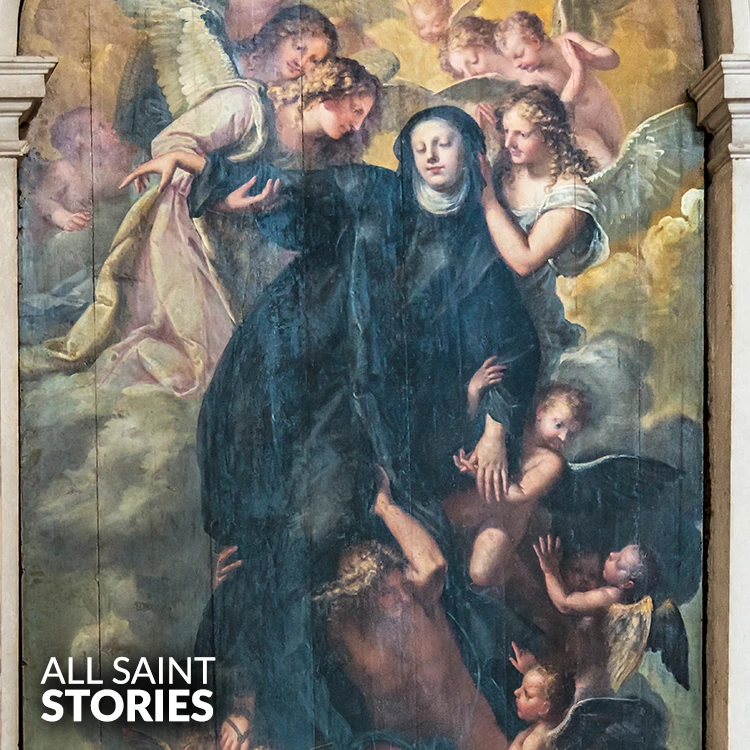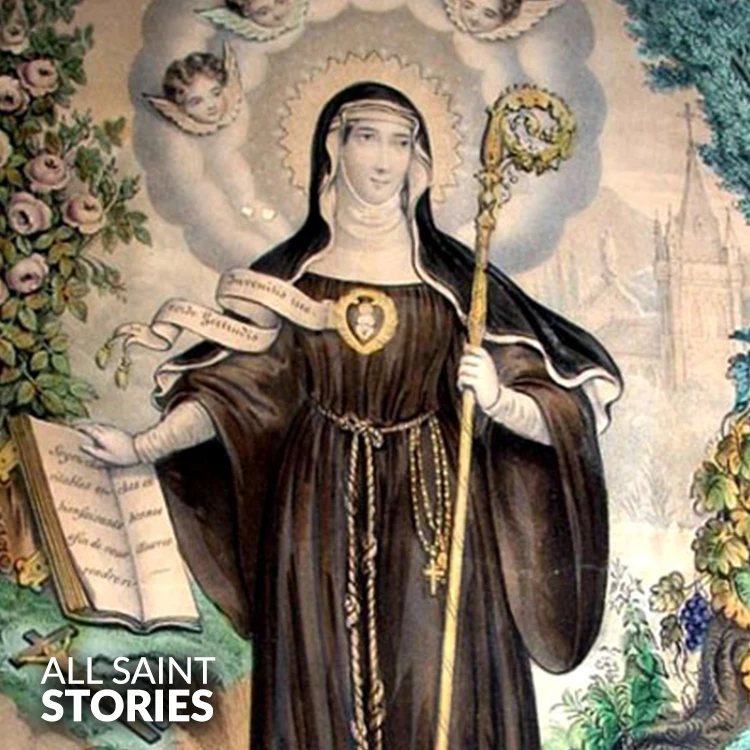Saint Gertrude, beloved servant of God, who devoted your life to His love and service, intercede for us with Christ, that we may grow in holiness and grace. Grant us strength to persevere in faith, and may your example of devotion inspire us always. Amen.
ST. GERTRUDE THE GREAT
ST. GERTRUDE THE GREAT

St. Gertrude the Great was a German Benedictine nun and mystic born in 1256. She entered the Monastery of Helfta at a young age, where she experienced mystical visions and became a renowned theologian. Her writings, particularly "The Herald of Divine Love," reflect her devotion to Christ and her profound union with the Sacred Heart. She passed away in 1302, and her feast day is celebrated on November 16.
St. Gertrude the Great, born in 1256 in Eisleben, Saxony, Germany, was a member of the Benedictine order and one of the most influential mystics of her time. Entering the Monastery of Helfta at the age of five, Gertrude received an excellent education and later became deeply involved in theology and scripture. Around the age of 24, she underwent a spiritual transformation and began focusing more on her relationship with Christ.
Gertrude's mystical experiences, which she documented in her writings, centered around the Sacred Heart of Jesus and her concept of "nuptial mysticism"—viewing herself as the bride of Christ. Her primary work, The Herald of Divine Love, contains numerous revelations and prayers that reflect her intimate spiritual life and profound union with the Holy Trinity.
She passed away in 1302 and was buried at the Monastery of Helfta. Although she was never formally canonized, St. Gertrude was widely venerated by the Church. In 1677, Pope Innocent XI officially recognized her feast day on November 16.
St. Gertrude's legacy continues to inspire devotion to the Sacred Heart of Jesus and her mystical approach to the life of faith. She is also the patroness of the West Indies.
Video Not Found
The information on this website is compiled from various trusted sources. While we aim for accuracy, some details may be incomplete or contain discrepancies.
If you notice any errors or have additional information about this saint, please use the form on the left to share your suggestions. Your input helps us improve and maintain reliable content for everyone.
All submissions are reviewed carefully, and your personal details will remain confidential. Thank you for contributing to the accuracy and value of this resource.
Credits & Acknowledgments
- Anudina Visudhar (Malayalam) – Life of Saints for Everyday
by Msgr. Thomas Moothedan, M.A., D.D. - Saint Companions for Each Day
by A. J. M. Mausolfe & J. K. Mausolfe - US Catholic (Faith in Real Life) – Informational articles
- Wikipedia – General reference content and images
- Anastpaul.com – Saint images and reflections
- Pravachaka Sabdam (Malayalam) – Saint-related content and insights
We sincerely thank these authors and platforms for their valuable contributions. If we have unintentionally missed any attribution, please notify us, and we will make the correction promptly.
If you have any suggestion about ST. GERTRUDE THE GREAT
Your suggestion will help improve the information about this saint. Your details will not be disclosed anywhere.
© 2026 Copyright @ www.allsaintstories.com






 English
English
 Italian
Italian
 French
French
 Spanish
Spanish
 Malayalam
Malayalam
 Russian
Russian
 Korean
Korean
 Sinhala
Sinhala
 Japanese
Japanese
 Arabic
Arabic
 Portuguese
Portuguese
 Bantu
Bantu
 Greek
Greek
 German
German
 Dutch
Dutch
 Filipino
Filipino